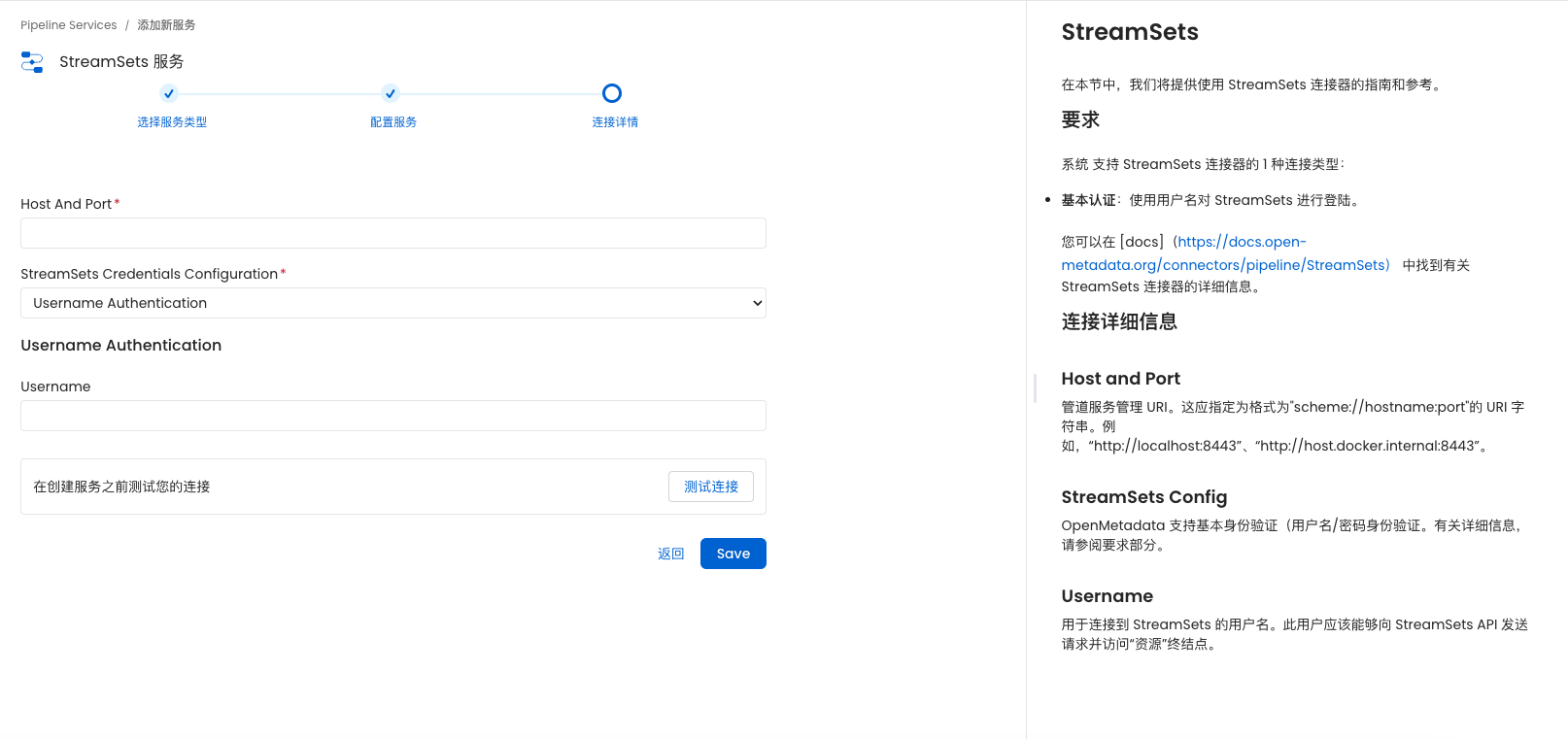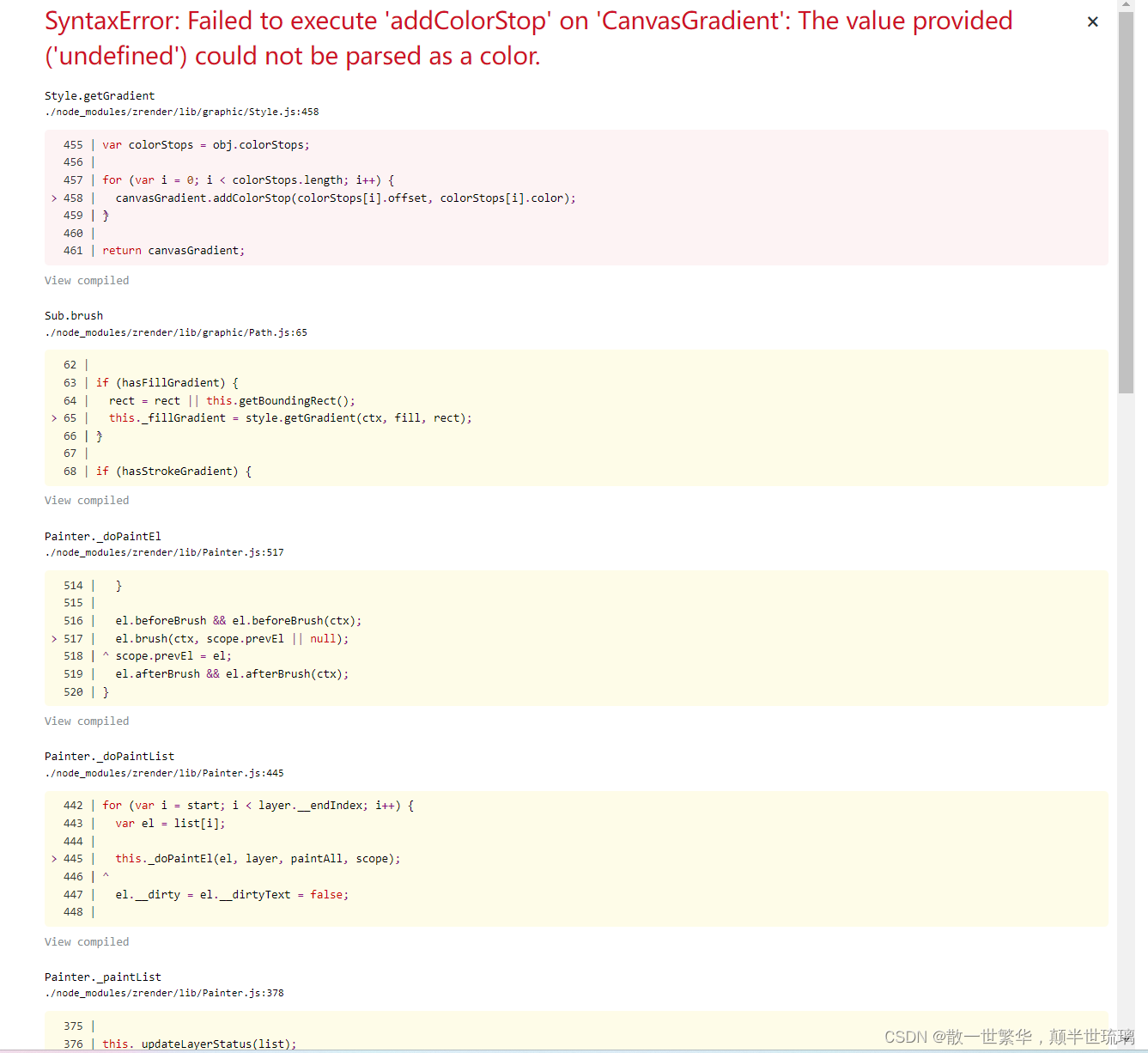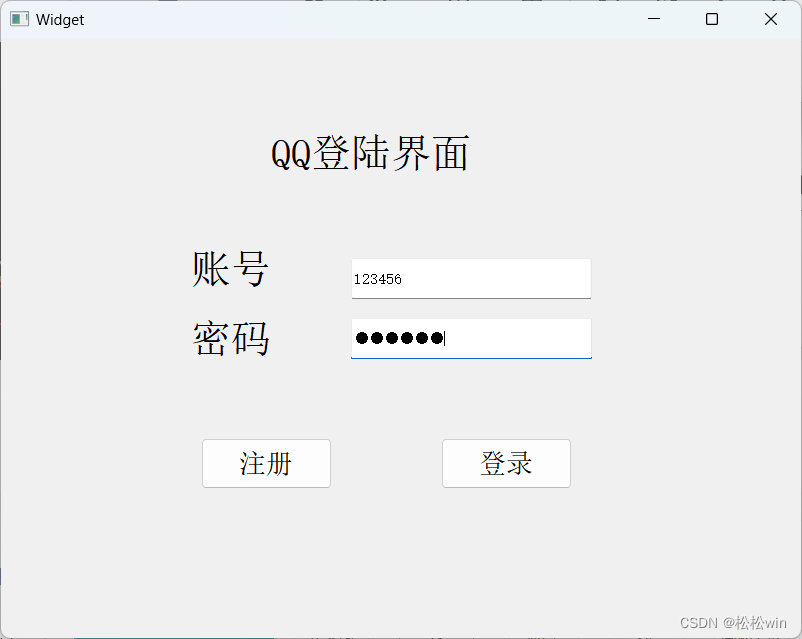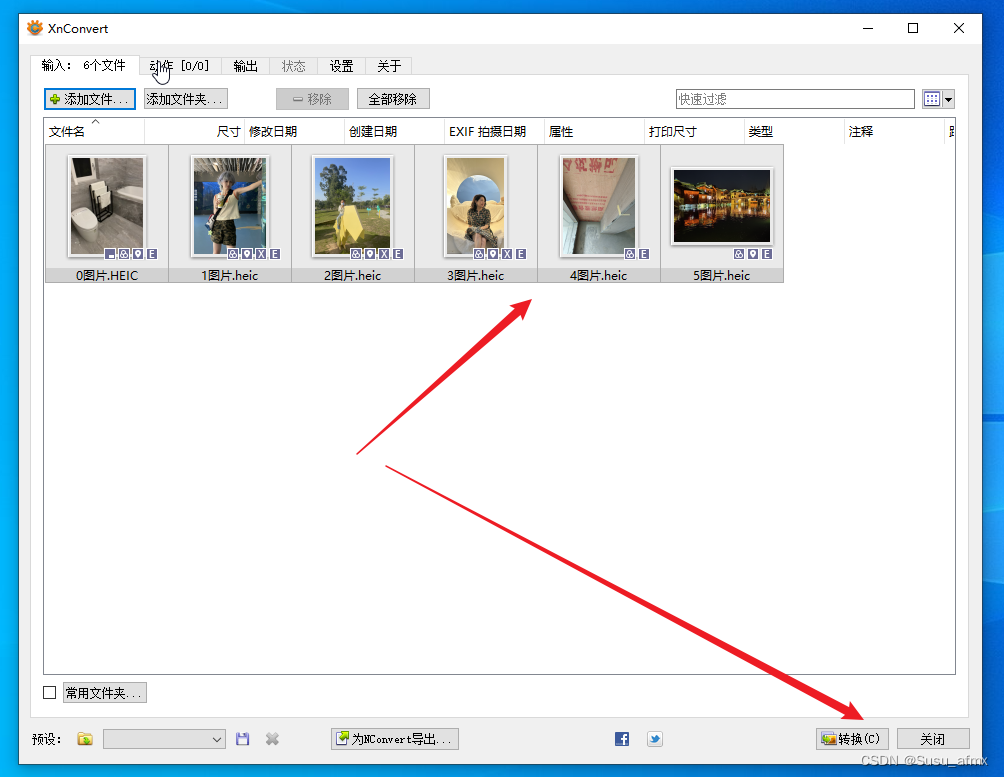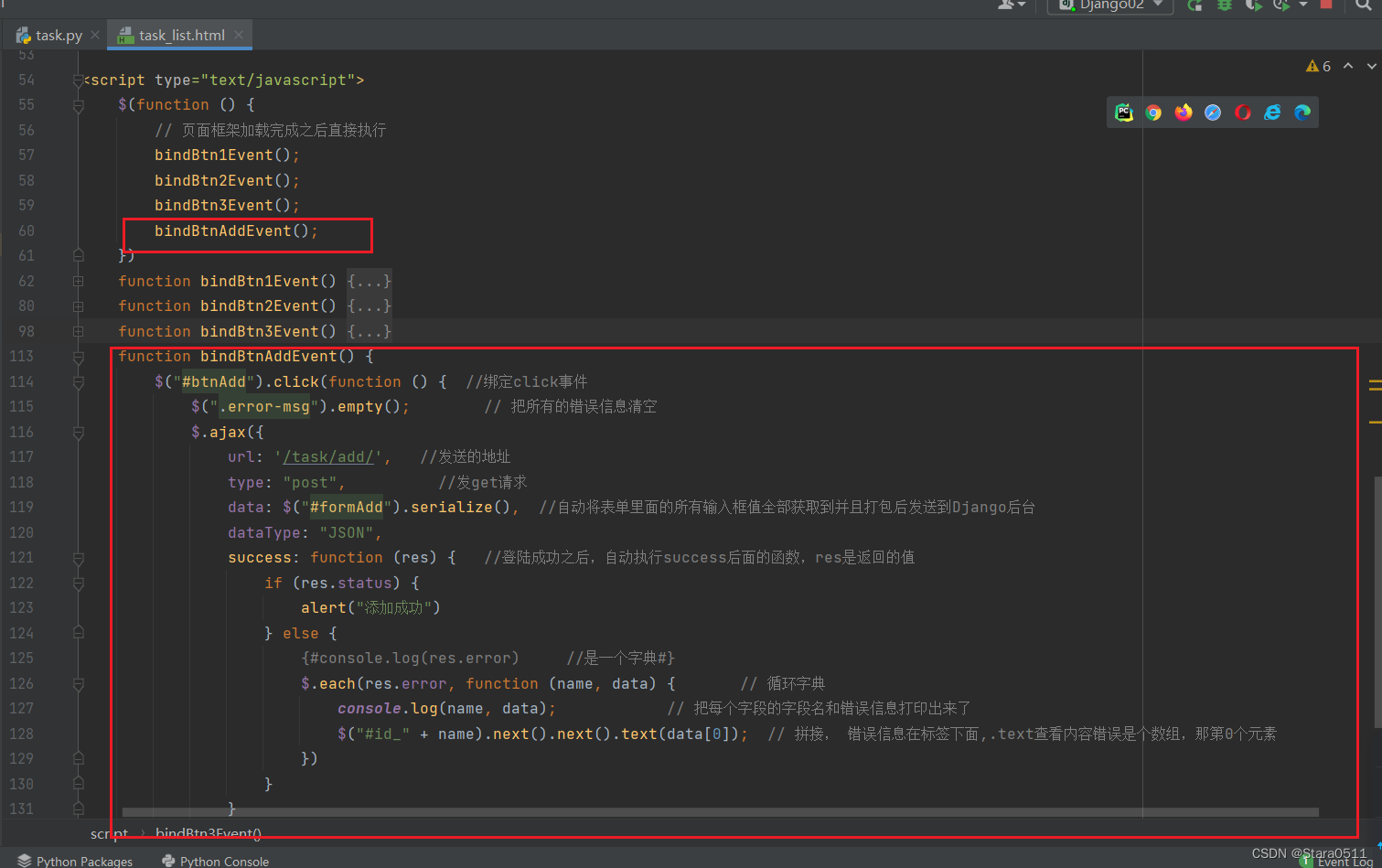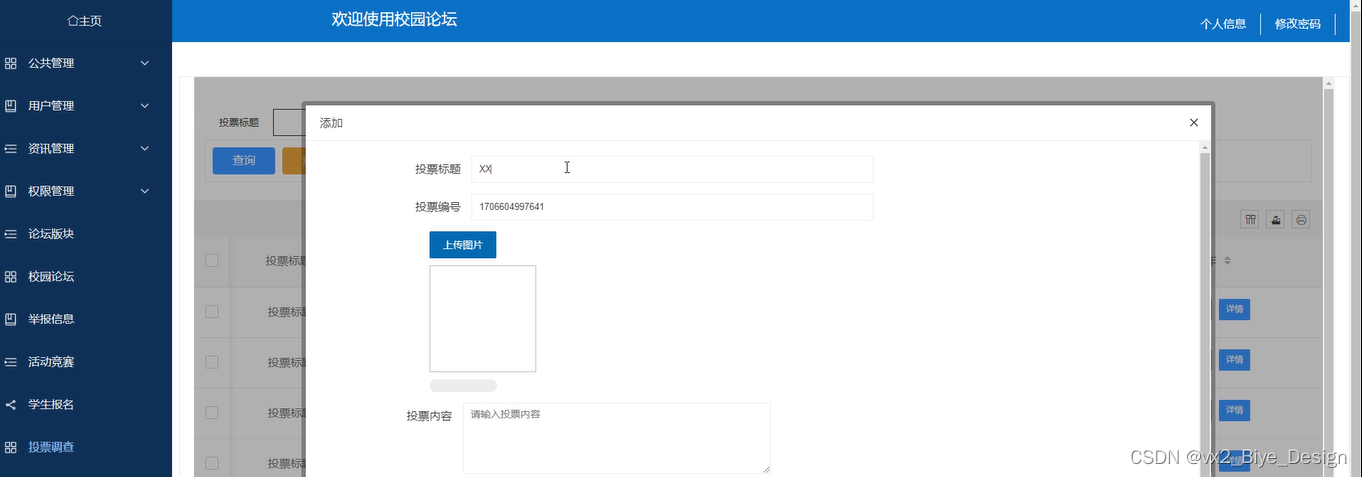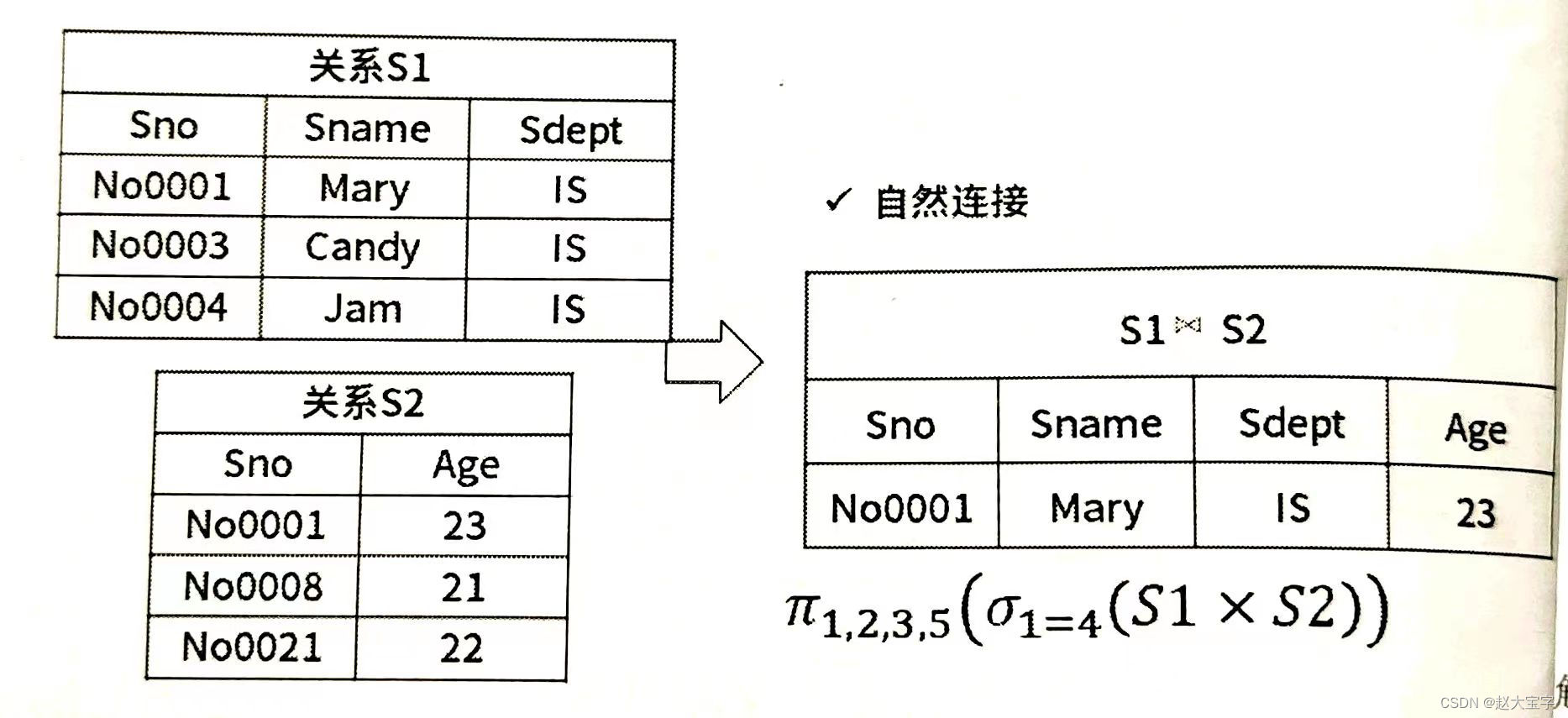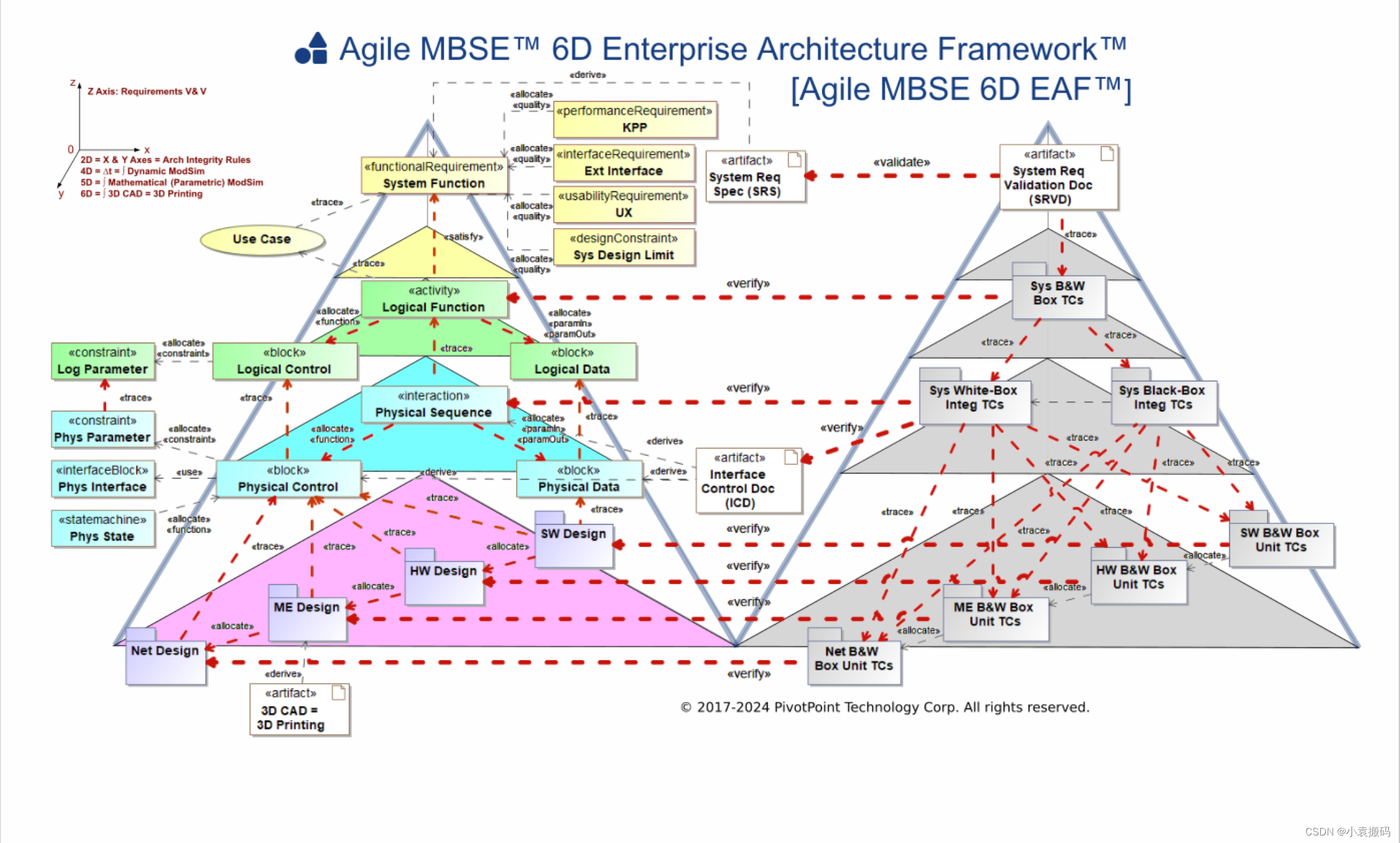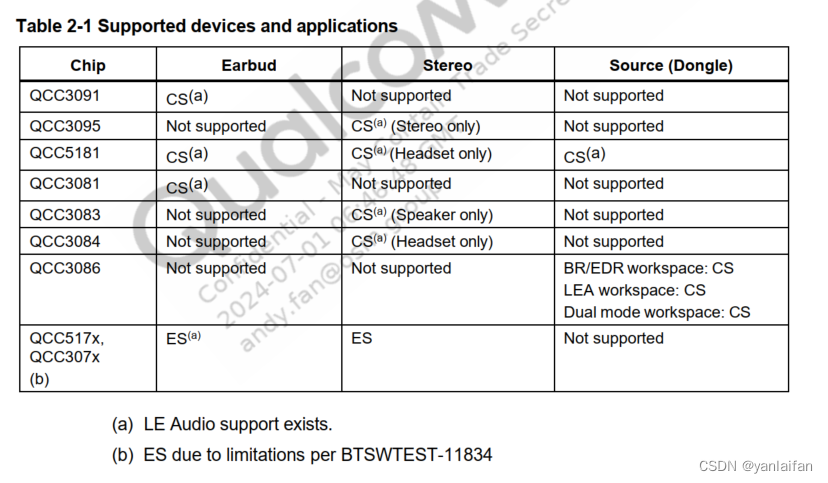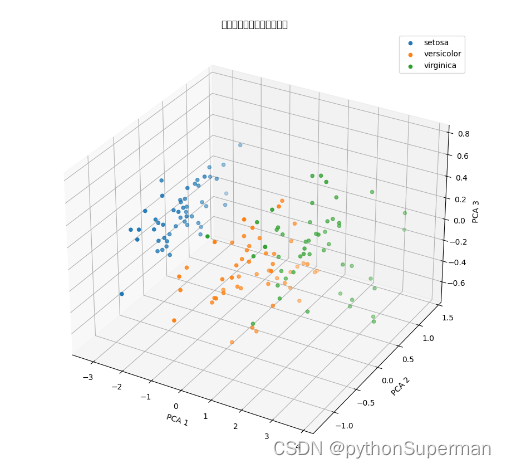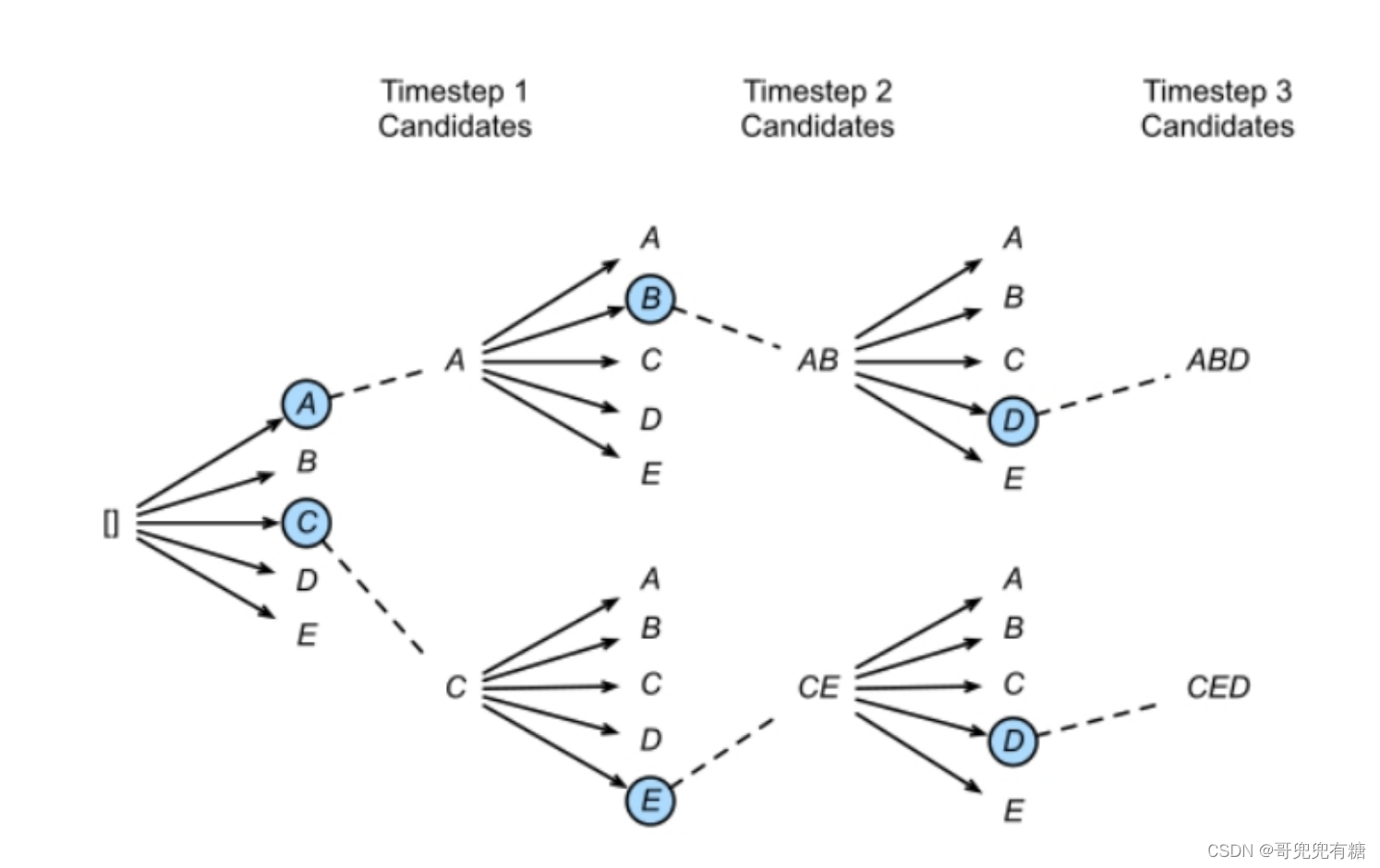openmetadata自定义连接器开发教程
一、开发通用自定义连接器教程
官网教程链接:
1.https://docs.open-metadata.org/v1.3.x/connectors/custom-connectors
2.https://github.com/open-metadata/openmetadata-demo/tree/main/custom-connector
(一)创建服务类型自定义连接器类
参考文档:https://docs.open-metadata.org/v1.3.x/sdk/python/build-connector/source#for-consumers-of-openmetadata-ingestion-to-define-custom-connectors-in-their-own-package-with-same-namespace
1.创建自定义连接器
示例:my_csv_connector.py
"""
自定义Database Service 从 CSV 文件中提取元数据
"""
import csv
import traceback
from pydantic import BaseModel, ValidationError, validator
from pathlib import Path
from typing import Iterable, Optional, List, Dict, Any
from metadata.ingestion.api.common import Entity
from metadata.ingestion.api.models import Either
from metadata.generated.schema.entity.services.ingestionPipelines.status import StackTraceError
from metadata.ingestion.api.steps import Source, InvalidSourceException
from metadata.generated.schema.entity.services.connections.metadata.openMetadataConnection import (
OpenMetadataConnection,
)
from metadata.generated.schema.entity.services.connections.database.customDatabaseConnection import (
CustomDatabaseConnection,
)
from metadata.generated.schema.entity.data.database import Database
from metadata.generated.schema.entity.data.databaseSchema import DatabaseSchema
from metadata.generated.schema.api.data.createDatabaseSchema import (
CreateDatabaseSchemaRequest,
)
from metadata.generated.schema.api.data.createDatabase import CreateDatabaseRequest
from metadata.generated.schema.entity.services.databaseService import (
DatabaseService,
)
from metadata.generated.schema.entity.data.table import (
Column,
)
from metadata.generated.schema.metadataIngestion.workflow import (
Source as WorkflowSource,
)
from metadata.generated.schema.api.data.createTable import CreateTableRequest
from metadata.ingestion.ometa.ometa_api import OpenMetadata
from metadata.utils.logger import ingestion_logger
logger = ingestion_logger()
class InvalidCsvConnectorException(Exception):
"""
Sample data is not valid to be ingested
"""
class CsvModel(BaseModel):
name: str
column_names: List[str]
column_types: List[str]
@validator("column_names", "column_types", pre=True)
def str_to_list(cls, value):
"""
Suppose that the internal split is in ;
"""
return value.split(";")
class CsvConnector(Source):
"""
Custom connector to ingest Database metadata.
We'll suppose that we can read metadata from a CSV
with a custom database name from a business_unit connection option.
"""
# 内置方法
def __init__(self, config: WorkflowSource, metadata: OpenMetadata):
self.config = config
self.metadata = metadata
# 获取配置信息
self.service_connection = config.serviceConnection.__root__.config
self.source_directory: str = (
# 获取CSV文件路径
self.service_connection.connectionOptions.__root__.get("source_directory")
)
if not self.source_directory:
raise InvalidCsvConnectorException(
"未获取到source_directory配置信息"
)
self.business_unit: str = (
# 获取自定义的数据库名称
self.service_connection.connectionOptions.__root__.get("business_unit")
)
if not self.business_unit:
raise InvalidCsvConnectorException(
"未获取到business_unit配置信息"
)
self.data: Optional[List[CsvModel]] = None
super().__init__()
# 内置函数
@classmethod
def create(
cls, config_dict: dict, metadata_config: OpenMetadataConnection
) -> "CsvConnector":
config: WorkflowSource = WorkflowSource.parse_obj(config_dict)
connection: CustomDatabaseConnection = config.serviceConnection.__root__.config
if not isinstance(connection, CustomDatabaseConnection):
raise InvalidSourceException(
f"Expected CustomDatabaseConnection, but got {connection}"
)
return cls(config, metadata_config)
# 静态方法:按行读取
@staticmethod
def read_row_safe(row: Dict[str, Any]):
try:
return CsvModel.parse_obj(row)
except ValidationError:
logger.warning(f"Error parsing row {row}. Skipping it.")
# 预处理:读取文件及数据
def prepare(self):
# Validate that the file exists
source_data = Path(self.source_directory)
if not source_data.exists():
raise InvalidCsvConnectorException("Source Data path does not exist")
try:
with open(source_data, "r", encoding="utf-8") as file:
reader = csv.DictReader(file)
# 读取数据
self.data = [self.read_row_safe(row) for row in reader]
except Exception as exc:
logger.error("Unknown error reading the source file")
raise exc
def yield_create_request_database_service(self):
yield Either(
# 串讲元数据读取服务
right=self.metadata.get_create_service_from_source(
entity=DatabaseService, config=self.config
)
)
# 业务原数据库名处理方法
def yield_business_unit_db(self):
# 选择我们刚刚创建的服务(如果不是UI)
# 获取提取服务对象
service_entity: DatabaseService = self.metadata.get_by_name(
entity=DatabaseService, fqn=self.config.serviceName
)
yield Either(
right=CreateDatabaseRequest(
name=self.business_unit,
service=service_entity.fullyQualifiedName,
)
)
# chems处理方法
def yield_default_schema(self):
# Pick up the service we just created (if not UI)
database_entity: Database = self.metadata.get_by_name(
entity=Database, fqn=f"{self.config.serviceName}.{self.business_unit}"
)
yield Either(
right=CreateDatabaseSchemaRequest(
name="default",
database=database_entity.fullyQualifiedName,
)
)
# 业务元数据处理方法
def yield_data(self):
"""
Iterate over the data list to create tables
"""
database_schema: DatabaseSchema = self.metadata.get_by_name(
entity=DatabaseSchema,
fqn=f"{self.config.serviceName}.{self.business_unit}.default",
)
# 异常处理
# 假设我们有一个要跟踪的故障
# try:
# 1/0
# except Exception:
# yield Either(
# left=StackTraceError(
# name="My Error",
# error="Demoing one error",
# stackTrace=traceback.format_exc(),
# )
# )
# 解析csv元数据信息(获取列名和类型)
for row in self.data:
yield Either(
right=CreateTableRequest(
name=row.name,
databaseSchema=database_schema.fullyQualifiedName,
columns=[
Column(
name=model_col[0],
dataType=model_col[1],
)
for model_col in zip(row.column_names, row.column_types)
],
)
)
# 迭代器:元数据迭代返回
def _iter(self) -> Iterable[Entity]:
# 数据库元数据信息存储
yield from self.yield_create_request_database_service()
# 业务源数据库
yield from self.yield_business_unit_db()
# 业务schema
yield from self.yield_default_schema()
# 业务数据
yield from self.yield_data()
# 测试数据库连接
def test_connection(self) -> None:
pass
# 连接关闭
def close(self):
pass
(二)将自定义连接器方法打包编译进ingestion镜像
项目目录:

Dockerfile:
FROM openmetadata/ingestion:1.3.1
# Let's use the same workdir as the ingestion image
WORKDIR ingestion
USER airflow
# Install our custom connector
COPY connector connector
COPY setup.py .
COPY sample.csv .
#COPY person_info.proto .
RUN pip install --no-deps .
编译服务镜像
docker build -t om-ingestion:build -f Dockerfile .
(三)部署新版ingestion服务()
docker-compose up -d
docker-compose-ingestion.yml
version: "3.9"
volumes:
ingestion-volume-dag-airflow:
ingestion-volume-dags:
ingestion-volume-tmp:
es-data:
services:
ingestion:
container_name: om_ingestion
image: om-ingestion:build
environment:
AIRFLOW__API__AUTH_BACKENDS: "airflow.api.auth.backend.basic_auth,airflow.api.auth.backend.session"
AIRFLOW__CORE__EXECUTOR: LocalExecutor
AIRFLOW__OPENMETADATA_AIRFLOW_APIS__DAG_GENERATED_CONFIGS: "/opt/airflow/dag_generated_configs"
DB_SCHEME: ${AIRFLOW_DB_SCHEME:-postgresql+psycopg2}
DB_HOST: ${AIRFLOW_DB_HOST:-host.docker.internal}
DB_PORT: ${AIRFLOW_DB_PORT:-5432}
AIRFLOW_DB: ${AIRFLOW_DB:-airflow_db}
DB_USER: ${AIRFLOW_DB_USER:-airflow_user}
DB_PASSWORD: ${AIRFLOW_DB_PASSWORD:-airflow_pass}
# extra connection-string properties for the database
# EXAMPLE
# require SSL (only for Postgres)
# properties: "?sslmode=require"
DB_PROPERTIES: ${AIRFLOW_DB_PROPERTIES:-}
# To test the lineage backend
# AIRFLOW__LINEAGE__BACKEND: airflow_provider_openmetadata.lineage.backend.OpenMetadataLineageBackend
# AIRFLOW__LINEAGE__AIRFLOW_SERVICE_NAME: local_airflow
AIRFLOW__LINEAGE__OPENMETADATA_API_ENDPOINT: http://host.docker.internal:8585/api
AIRFLOW__LINEAGE__JWT_TOKEN: eyJraWQiOiJHYjM4OWEtOWY3Ni1nZGpzLWE5MmotMDI0MmJrOTQzNTYiLCJhbGciOiJSUzI1NiIsInR5cCI6IkpXVCJ9.eyJpc3MiOiJvcGVuLW1ldGFkYXRhLm9yZyIsInN1YiI6ImluZ2VzdGlvbi1ib3QiLCJlbWFpbCI6ImluZ2VzdGlvbi1ib3RAb3Blbm1ldGFkYXRhLm9yZyIsImlzQm90Ijp0cnVlLCJ0b2tlblR5cGUiOiJCT1QiLCJpYXQiOjE3MDk3MDkyNDMsImV4cCI6bnVsbH0.U7XIYZjJAmJ-p3WTy4rTGGSzUxZeNpjOsHzrWRz7n-zAl-GZvznZWMKX5nSX_KwRHAK3UYuO1UX2-ZbeZxdpzhyumycNFyWzwMs8G6iEGoaM6doGhqCgHileco8wcAoaTXKHTnwa80ddWHt4dqZmikP7cIhLg9etKAepQNQibefewHbaLOoCrFyo9BqFeZzNaVBo1rogNtslWaDO6Wnk_rx0jxRLTy57Thq7R7YS_nZd-JVfYf72BEFHJ_WDZym4k-dusV0PWGzMPYIXq3s1KbpPBt_tUSz4cUrXbLuI5-ZsOWIvUhsLeHJDU-35-RymylhMrQ92kZjsy7v2nl6apQ
entrypoint: /bin/bash
command:
- "/opt/airflow/ingestion_dependency.sh"
expose:
- 8080
ports:
- "8080:8080"
networks:
- app_net_ingestion
volumes:
- ingestion-volume-dag-airflow:/opt/airflow/dag_generated_configs
- ingestion-volume-dags:/opt/airflow/dags
- ingestion-volume-tmp:/tmp
networks:
app_net_ingestion:
ipam:
driver: default
config:
- subnet: "172.16.240.0/24"
(四)根据服务类型选择对应类型的custom服务创建采集器测试
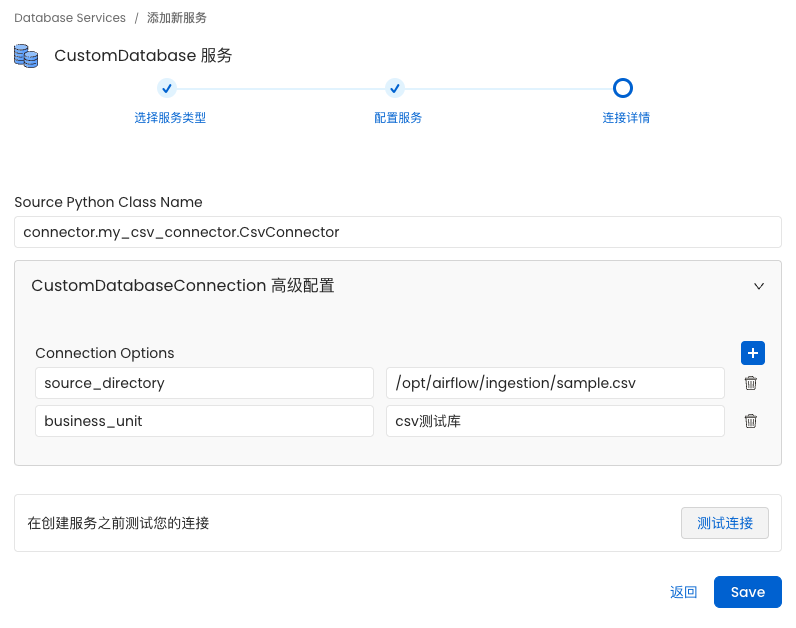
点击保存添加元数据提取器:


二、开发内置连接器教程(Streamsets)
官网教程链接:https://docs.open-metadata.org/v1.3.x/developers/contribute/developing-a-new-connector
(一)定义连接器class类json模版(streamSetsConnection.json)
目录:openmetadata-spec/src/main/resources/json/schema/entity/services/connections/pipeline/streamSetsConnection.json
{
"$id": "https://open-metadata.org/schema/entity/services/connections/pipeline/streamSetsConnection.json",
"$schema": "http://json-schema.org/draft-07/schema#",
"title": "StreamSetsConnection",
"description": "StreamSets Metadata Pipeline Connection Config",
"type": "object",
"javaType": "org.openmetadata.schema.services.connections.pipeline.StreamSetsConnection",
"definitions": {
"StreamSetsType": {
"description": "Service type.",
"type": "string",
"enum": ["StreamSets"],
"default": "StreamSets"
},
"basicAuthentication": {
"title": "Username Authentication",
"description": "Login username",
"type":"object",
"properties": {
"username": {
"title": "Username",
"description": "StreamSets user to authenticate to the API.",
"type": "string"
}
},
"additionalProperties": false
}
},
"properties": {
"type": {
"title": "Service Type",
"description": "Service Type",
"$ref": "#/definitions/StreamSetsType",
"default": "StreamSets"
},
"hostPort": {
"expose": true,
"title": "Host And Port",
"description": "Pipeline Service Management/UI URI.",
"type": "string",
"format": "uri"
},
"streamSetsConfig": {
"title": "StreamSets Credentials Configuration",
"description": "We support username authentication",
"oneOf": [
{
"$ref": "#/definitions/basicAuthentication"
}
]
},
"supportsMetadataExtraction": {
"title": "Supports Metadata Extraction",
"$ref": "../connectionBasicType.json#/definitions/supportsMetadataExtraction"
}
},
"additionalProperties": false,
"required": ["hostPort", "streamSetsConfig"]
}
(二)开发采集器源码:
目录:ingestion/src/metadata/ingestion/source/pipeline/streamsets/*

1.streamsets连接客户端(client.py)
import logging
import traceback
from typing import Any, Iterable, Optional
import requests
from requests import HTTPError
from requests.auth import HTTPBasicAuth
# 设置日志记录器
logging.basicConfig(level=logging.DEBUG)
logger = logging.getLogger(__name__)
REQUESTS_TIMEOUT = 60 * 5
def clean_uri(uri: str) -> str:
"""清理URI,确保它以HTTP或HTTPS开头"""
if not uri.startswith(("http://", "https://")):
return "http://" + uri
return uri
class StreamSetsClient:
"""
在StreamSets Data Collector REST API之上的包装器
"""
def __init__(
self,
host_port: str,
username: Optional[str] = None,
password: Optional[str] = None,
verify: bool = False,
):
self.api_endpoint = clean_uri(host_port) + "/rest"
self.username = username
self.password = password
self.verify = verify
self.headers = {"Content-Type": "application/json"}
def get(self, path: str) -> Optional[Any]:
"""
GET方法包装器
"""
try:
res = requests.get(
f"{self.api_endpoint}/{path}",
verify=self.verify,
headers=self.headers,
timeout=REQUESTS_TIMEOUT,
auth=HTTPBasicAuth(self.username, self.password),
)
res.raise_for_status()
return res.json()
except HTTPError as err:
logger.warning(f"Connection error calling the StreamSets API - {err}")
raise err
except ValueError as err:
logger.warning(f"Cannot pick up the JSON from API response - {err}")
raise err
except Exception as err:
logger.warning(f"Unknown error calling StreamSets API - {err}")
raise err
def list_pipelines(self) -> Iterable[dict]:
"""
List all pipelines
"""
try:
return self.get("v1/pipelines")
except Exception as err:
logger.error(traceback.format_exc())
raise err
def get_pipeline_details(self, pipeline_id: str) -> dict:
"""
Get a specific pipeline by ID
"""
return self.get(f"v1/pipeline/{pipeline_id}?rev=0&get=pipeline")
def test_list_pipeline_detail(self) -> Iterable[dict]:
"""
Test API access for listing pipelines
"""
return self.list_pipelines()
2.连接器和测试连接器(connection.py)
"""
源连接处理程序
"""
from typing import Optional
from metadata.generated.schema.entity.automations.workflow import (
Workflow as AutomationWorkflow,
)
from metadata.generated.schema.entity.services.connections.pipeline.streamSetsConnection import (
BasicAuthentication,
StreamSetsConnection,
)
from metadata.ingestion.connections.test_connections import test_connection_steps
from metadata.ingestion.ometa.ometa_api import OpenMetadata
from metadata.ingestion.source.pipeline.streamsets.client import StreamSetsClient
def get_connection(connection: StreamSetsConnection) -> StreamSetsClient:
"""
Create connection
"""
if isinstance(connection.streamSetsConfig, BasicAuthentication):
return StreamSetsClient(
host_port=connection.hostPort,
username=connection.streamSetsConfig.username,
password="95bd7977208bc935cac3656f4a9eea3a",
verify=False,
)
def test_connection(
metadata: OpenMetadata,
client: StreamSetsClient,
service_connection: StreamSetsConnection,
automation_workflow: Optional[AutomationWorkflow] = None,
) -> None:
"""
元数据工作流或自动化工作流期间
测试连接。这可以作为一部分执行
"""
def custom_executor():
list(client.list_pipelines())
test_fn = {"GetPipelines": custom_executor}
test_connection_steps(
metadata=metadata,
test_fn=test_fn,
service_type=service_connection.type.value,
automation_workflow=automation_workflow,
)
3.元数据提取器(metadata.py)
"""
提取StreamSets 源的元数据
"""
import traceback
from typing import Iterable, List, Optional, Any
from metadata.generated.schema.entity.services.ingestionPipelines.status import StackTraceError
from pydantic import BaseModel, ValidationError
from metadata.generated.schema.api.data.createPipeline import CreatePipelineRequest
from metadata.generated.schema.api.lineage.addLineage import AddLineageRequest
from metadata.generated.schema.entity.data.pipeline import Task
from metadata.generated.schema.entity.services.connections.pipeline.streamSetsConnection import (
StreamSetsConnection,
)
from metadata.generated.schema.metadataIngestion.workflow import (
Source as WorkflowSource,
)
from metadata.ingestion.api.models import Either
from metadata.ingestion.api.steps import InvalidSourceException
from metadata.ingestion.models.pipeline_status import OMetaPipelineStatus
from metadata.ingestion.ometa.ometa_api import OpenMetadata
from metadata.ingestion.source.pipeline.pipeline_service import PipelineServiceSource
from metadata.utils.helpers import clean_uri
from metadata.utils.logger import ingestion_logger
logger = ingestion_logger()
class StagesDetails(BaseModel):
instanceName: str
label:str
stageType: str
stageName: str
description: str
inputLanes: List[str]
outputLanes: List[str]
downstream_task_names: set[str] = set()
class StreamSetsPipelineDetails(BaseModel):
"""
Defines the necessary StreamSets information
"""
uuid: str
pipelineId: str
title: str
name: str
created: int
creator: str
description: str
class StreamsetsSource(PipelineServiceSource):
"""
执行必要的方法,从 Airflow 的元数据数据库中提取管道元数据
"""
@classmethod
def create(cls, config_dict: dict, metadata: OpenMetadata):
logger.info("create..........")
config: WorkflowSource = WorkflowSource.parse_obj(config_dict)
logger.info(f"WorkflowSource: {config}")
connection: StreamSetsConnection = config.serviceConnection.__root__.config
logger.info(f"StreamSetsConnection: {connection}")
if not isinstance(connection, StreamSetsConnection):
raise InvalidSourceException(
f"Expected StreamSetsConnection, but got {connection}"
)
return cls(config, metadata)
def yield_pipeline(
self, pipeline_details: StreamSetsPipelineDetails
) -> Iterable[Either[CreatePipelineRequest]]:
logger.info("yield_pipeline.......")
try:
connection_url = None
if self.service_connection.hostPort:
connection_url = (
f"{clean_uri(self.service_connection.hostPort)}/rest/v1/pipelines"
)
logger.info(f"pipeline_details:{pipeline_details}")
logger.info(f"connection_url:{connection_url}")
pipeline_request = CreatePipelineRequest(
name=pipeline_details.name,
displayName=pipeline_details.title,
sourceUrl=f"{clean_uri(self.service_connection.hostPort)}/collector/pipeline/{pipeline_details.pipelineId}",
tasks=self._get_tasks_from_details(pipeline_details),
service=self.context.pipeline_service,
)
yield Either(right=pipeline_request)
self.register_record(pipeline_request=pipeline_request)
except TypeError as err:
self.context.task_names = set()
yield Either(
left=StackTraceError(
name=pipeline_details.dag_id,
error=(
f"Error building DAG information from {pipeline_details}. There might be Airflow version"
f" incompatibilities - {err}"
),
stackTrace=traceback.format_exc(),
)
)
except ValidationError as err:
self.context.task_names = set()
yield Either(
left=StackTraceError(
name=pipeline_details.dag_id,
error=f"Error building pydantic model for {pipeline_details} - {err}",
stackTrace=traceback.format_exc(),
)
)
except Exception as err:
self.context.task_names = set()
yield Either(
left=StackTraceError(
name=pipeline_details.dag_id,
error=f"Wild error ingesting pipeline {pipeline_details} - {err}",
stackTrace=traceback.format_exc(),
)
)
# 获取解析管道详情
def _get_tasks_from_details(
self, pipeline_details: StreamSetsPipelineDetails
) -> Optional[List[Task]]:
logger.info("_get_tasks_from_details.......")
logger.info(f"StreamSetsPipelineDetails:{pipeline_details}")
try:
stages = self.get_stages_by_pipline(pipeline_details)
return [
Task(
name=stage.instanceName,
displayName=stage.label,
sourceUrl=f"{clean_uri(self.service_connection.hostPort)}/collector/pipeline/{pipeline_details.pipelineId}",
taskType=stage.stageType,
description=stage.description,
downstreamTasks=list(stage.downstream_task_names)
if stage.downstream_task_names
else [],
)
for stage in stages
]
except Exception as err:
logger.debug(traceback.format_exc())
logger.warning(
f"Wild error encountered when trying to get tasks from Pipeline Details {pipeline_details} - {err}."
)
return None
def yield_pipeline_lineage_details(
self, pipeline_details: StreamSetsPipelineDetails
) -> Iterable[Either[AddLineageRequest]]:
logger.info("yield_pipeline_lineage_details..........")
"""
将连接转换为管道实体
:param pipeline_details: 来自 StreamSets的pipeline_details对象
return:使用任务创建管道请求
"""
pass
def get_pipelines_list(
self
) -> Optional[List[StreamSetsPipelineDetails]]:
logger.info("get_pipelines_list..........")
"""Get List of all pipelines"""
if self.connection.list_pipelines() is not None:
for list_pipeline in self.connection.list_pipelines():
logger.info(f"pipeline:{list_pipeline}")
try:
yield StreamSetsPipelineDetails(
uuid=list_pipeline.get("uuid"),
pipelineId=list_pipeline.get("pipelineId"),
title=list_pipeline.get("title"),
name=list_pipeline.get("name"),
created=list_pipeline.get("created"),
creator=list_pipeline.get("creator"),
description=list_pipeline.get("description"),
)
except (ValueError, KeyError, ValidationError) as err:
logger.debug(traceback.format_exc())
logger.warning(
f"Cannot create StreamSetsPipelineDetails from {list_pipeline} - {err}"
)
except Exception as err:
logger.debug(traceback.format_exc())
logger.warning(
f"Wild error encountered when trying to get pipelines from Process Group {list_pipeline} - {err}."
)
else:
return None
# 获取上下关联关系
def get_stages_lane(
self, stages: Optional[List[StagesDetails]]
) -> {}:
logger.info("get_stages_lane......")
input_lane_to_stage_map = {}
for stage in stages:
logger.info(f"stage_info:{stage}")
for input_lane in stage.get("inputLanes", []):
try:
if input_lane_to_stage_map.get(input_lane) is None:
input_lane_to_stage_map[input_lane] = set()
input_lane_to_stage_map[input_lane].add(stage.get("instanceName"))
else:
input_lane_to_stage_map[input_lane].add(stage.get("instanceName"))
except Exception as err:
logger.debug(traceback.format_exc())
logger.warning(
f"Wild error encountered when trying to get stages from Pipeline Details {stages} - {err}.")
logger.info(f"input_lane_to_stage_map:{input_lane_to_stage_map}")
return input_lane_to_stage_map
def get_stages_by_pipline(
self, pipeline_details: StreamSetsPipelineDetails
) -> Optional[List[StagesDetails]]:
logger.info("get_stages_by_pipline")
pipeline_detail = self.connection.get_pipeline_details(pipeline_details.pipelineId)
stages = []
if pipeline_detail.get("stages"):
stages = pipeline_detail.get("stages")
input_lane_to_stage_map = self.get_stages_lane(stages)
for stage in stages:
logger.info(f"stage:{stage}")
try:
input_lanes = stage.get("inputLanes", [])
output_lanes = stage.get("outputLanes", [])
downstream_stage_names = set()
for output_lane in stage.get("outputLanes", []):
if output_lane in input_lane_to_stage_map.keys():
for down_stage in input_lane_to_stage_map.get(output_lane, []):
downstream_stage_names.add(down_stage)
yield StagesDetails(
instanceName=stage.get("instanceName"),
label=stage["uiInfo"].get("label"),
stageType=stage["uiInfo"].get("stageType"),
stageName=stage.get("stageName"),
description=stage["uiInfo"].get("description"),
inputLanes=input_lanes,
outputLanes=output_lanes,
downstream_task_names=downstream_stage_names
)
except (ValueError, KeyError, ValidationError) as err:
logger.debug(traceback.format_exc())
logger.warning(
f"Cannot create StagesDetails from {stage} - {err}"
)
except Exception as err:
logger.debug(traceback.format_exc())
logger.warning(
f"Wild error encountered when trying to get pipelines from Process Group {stage} - {err}."
)
def get_pipeline_name(
self, pipeline_details: StreamSetsPipelineDetails
) -> str:
return pipeline_details.name
def yield_pipeline_status(
self, pipeline_details: StreamSetsPipelineDetails
) -> Iterable[Either[OMetaPipelineStatus]]:
pass
(三)修改前端ui源码,添加连接器对象
目录:openmetadata-ui/src/main/resources/ui/src/utils/PipelineServiceUtils.ts
/*
* Copyright 2022 Collate.
* Licensed under the Apache License, Version 2.0 (the "License");
* you may not use this file except in compliance with the License.
* You may obtain a copy of the License at
* http://www.apache.org/licenses/LICENSE-2.0
* Unless required by applicable law or agreed to in writing, software
* distributed under the License is distributed on an "AS IS" BASIS,
* WITHOUT WARRANTIES OR CONDITIONS OF ANY KIND, either express or implied.
* See the License for the specific language governing permissions and
* limitations under the License.
*/
import { cloneDeep } from 'lodash';
import { COMMON_UI_SCHEMA } from '../constants/Services.constant';
import { PipelineServiceType } from '../generated/entity/services/pipelineService';
import airbyteConnection from '../jsons/connectionSchemas/connections/pipeline/airbyteConnection.json';
import airflowConnection from '../jsons/connectionSchemas/connections/pipeline/airflowConnection.json';
import customPipelineConnection from '../jsons/connectionSchemas/connections/pipeline/customPipelineConnection.json';
import dagsterConnection from '../jsons/connectionSchemas/connections/pipeline/dagsterConnection.json';
import databricksPipelineConnection from '../jsons/connectionSchemas/connections/pipeline/databricksPipelineConnection.json';
import domoPipelineConnection from '../jsons/connectionSchemas/connections/pipeline/domoPipelineConnection.json';
import fivetranConnection from '../jsons/connectionSchemas/connections/pipeline/fivetranConnection.json';
import gluePipelineConnection from '../jsons/connectionSchemas/connections/pipeline/gluePipelineConnection.json';
import nifiConnection from '../jsons/connectionSchemas/connections/pipeline/nifiConnection.json';
import splineConnection from '../jsons/connectionSchemas/connections/pipeline/splineConnection.json';
import streamSetsConnection from '../jsons/connectionSchemas/connections/pipeline/streamSetsConnection.json';
export const getPipelineConfig = (type: PipelineServiceType) => {
let schema = {};
const uiSchema = { ...COMMON_UI_SCHEMA };
switch (type) {
case PipelineServiceType.Airbyte: {
schema = airbyteConnection;
break;
}
case PipelineServiceType.Airflow: {
schema = airflowConnection;
break;
}
case PipelineServiceType.GluePipeline: {
schema = gluePipelineConnection;
break;
}
case PipelineServiceType.Fivetran: {
schema = fivetranConnection;
break;
}
case PipelineServiceType.Dagster: {
schema = dagsterConnection;
break;
}
case PipelineServiceType.Nifi: {
schema = nifiConnection;
break;
}
case PipelineServiceType.StreamSets: {
schema = streamSetsConnection;
break;
}
case PipelineServiceType.DomoPipeline: {
schema = domoPipelineConnection;
break;
}
case PipelineServiceType.CustomPipeline: {
schema = customPipelineConnection;
break;
}
case PipelineServiceType.DatabricksPipeline: {
schema = databricksPipelineConnection;
break;
}
case PipelineServiceType.Spline: {
schema = splineConnection;
break;
}
default:
break;
}
return cloneDeep({ schema, uiSchema });
};
(四)前端ui源码,添加MD说明文档
路径:openmetadata-ui/src/main/resources/ui/public/locales/en-US/Pipeline/StreamSets.md
# StreamSets
在本节中,我们将提供使用 StreamSets 连接器的指南和参考。
## 要求
系统 支持 StreamSets 连接器的 1 种连接类型:
- **基本认证**:使用用户名对 StreamSets 进行登陆。
您可以在 [docs](https://docs.open-metadata.org/connectors/pipeline/StreamSets) 中找到有关 StreamSets 连接器的详细信息。
## 连接详细信息
$$section
### Host and Port $(id="hostPort")
管道服务管理 URI。这应指定为格式为"scheme://hostname:port"的 URI 字符串。例如,“http://localhost:8443”、“http://host.docker.internal:8443”。
$$
$$section
### StreamSets Config $(id="StreamSetsConfig")
OpenMetadata 支持基本身份验证(用户名/密码身份验证。有关详细信息,请参阅要求部分。
$$
$$section
### Username $(id="username")
用于连接到 StreamSets 的用户名。此用户应该能够向 StreamSets API 发送请求并访问“资源”终结点。
$$
(五)创建 Java ClassConverter(可选)
无
(六)构建dockefile重新构建镜像
server服务Dockerfile
# Build stage
FROM alpine:3.19 AS build
COPY openmetadata-dist/target/openmetadata-*.tar.gz /
#COPY docker/openmetadata-start.sh /
RUN mkdir -p /opt/openmetadata && \
tar zxvf openmetadata-*.tar.gz -C /opt/openmetadata --strip-components 1 && \
rm openmetadata-*.tar.gz
# Final stage
FROM alpine:3.19
EXPOSE 8585
RUN adduser -D openmetadata && \
apk update && \
apk upgrade && \
apk add --update --no-cache bash openjdk17-jre tzdata
ENV TZ=Asia/Shanghai
COPY --chown=openmetadata:openmetadata --from=build /opt/openmetadata /opt/openmetadata
COPY --chmod=755 docker/openmetadata-start.sh /
USER openmetadata
WORKDIR /opt/openmetadata
ENTRYPOINT [ "/bin/bash" ]
CMD ["/openmetadata-start.sh"]
ingestion服务Dockerfile
路径:ingestion/Dockerfile
FROM apache/airflow:2.7.3-python3.10
#FROM docker-compose-ingestion-ingestion:latest
USER root
RUN curl -sS https://packages.microsoft.com/keys/microsoft.asc | apt-key add -
RUN curl -sS https://packages.microsoft.com/config/debian/11/prod.list > /etc/apt/sources.list.d/mssql-release.list
# Install Dependencies (listed in alphabetical order)
ENV DEBIAN_FRONTEND=noninteractive
RUN apt-get -qq update \
&& apt-get -qq install -y \
tzdata \
alien \
build-essential \
default-libmysqlclient-dev \
freetds-bin \
freetds-dev \
gcc \
gnupg \
libaio1 \
libevent-dev \
libffi-dev \
libpq-dev \
librdkafka-dev \
libsasl2-dev \
libsasl2-2 \
libsasl2-modules \
libsasl2-modules-gssapi-mit \
libssl-dev \
libxml2 \
libkrb5-dev \
openjdk-11-jre \
openssl \
postgresql \
postgresql-contrib \
tdsodbc \
unixodbc \
unixodbc-dev \
unzip \
vim \
git \
wget --no-install-recommends \
# Accept MSSQL ODBC License
&& ACCEPT_EULA=Y apt-get install -y msodbcsql18 \
&& rm -rf /var/lib/apt/lists/*
RUN if [[ $(uname -m) == "arm64" || $(uname -m) == "aarch64" ]]; \
then \
wget -q https://download.oracle.com/otn_software/linux/instantclient/191000/instantclient-basic-linux.arm64-19.10.0.0.0dbru.zip -O /oracle-instantclient.zip && \
unzip -qq -d /instantclient -j /oracle-instantclient.zip && rm -f /oracle-instantclient.zip; \
else \
wget -q https://download.oracle.com/otn_software/linux/instantclient/1917000/instantclient-basic-linux.x64-19.17.0.0.0dbru.zip -O /oracle-instantclient.zip && \
unzip -qq -d /instantclient -j /oracle-instantclient.zip && rm -f /oracle-instantclient.zip; \
fi
ENV LD_LIBRARY_PATH=/instantclient
# Security patches for base image
# monitor no fixed version for
# https://security.snyk.io/vuln/SNYK-DEBIAN11-LIBTASN16-3061097
# https://security.snyk.io/vuln/SNYK-DEBIAN11-MARIADB105-2940589
# https://security.snyk.io/vuln/SNYK-DEBIAN11-BIND9-3027852
# https://security.snyk.io/vuln/SNYK-DEBIAN11-EXPAT-3023031 we are already installed the latest
RUN echo "deb http://deb.debian.org/debian bullseye-backports main" > /etc/apt/sources.list.d/backports.list
RUN apt-get -qq update \
&& apt-get -qq install -t bullseye-backports -y \
curl \
libpcre2-8-0 \
postgresql-common \
expat \
bind9
# Required for Starting Ingestion Container in Docker Compose
# Provide Execute Permissions to shell script
COPY --chown=airflow:0 --chmod=775 ingestion/ingestion_dependency.sh /opt/airflow
# Required for Ingesting Sample Data
COPY --chown=airflow:0 --chmod=775 ingestion /home/airflow/ingestion
COPY --chown=airflow:0 --chmod=775 openmetadata-airflow-apis /home/airflow/openmetadata-airflow-apis
# Required for Airflow DAGs of Sample Data
#COPY --chown=airflow:0 ingestion/examples/airflow/dags /opt/airflow/dags
USER airflow
ARG AIRFLOW_CONSTRAINTS_LOCATION="https://raw.githubusercontent.com/apache/airflow/constraints-2.7.3/constraints-3.10.txt"
ENV TZ=Asia/Shanghai
# Disable pip cache dir
# https://pip.pypa.io/en/stable/topics/caching/#avoiding-caching
ENV PIP_NO_CACHE_DIR=1
# Make pip silent
ENV PIP_QUIET=1
RUN pip install --upgrade pip
WORKDIR /home/airflow/openmetadata-airflow-apis
RUN pip install "."
WORKDIR /home/airflow/ingestion
# 提供要安装的引入依赖项的参数。默认为全部提供要安装的引入依赖项的参数。默认为全部
ARG INGESTION_DEPENDENCY="all"
RUN pip install ".[${INGESTION_DEPENDENCY}]"
# Temporary workaround for https://github.com/open-metadata/OpenMetadata/issues/9593
RUN echo "Image built for $(uname -m)"
RUN if [[ $(uname -m) != "aarch64" ]]; \
then \
pip install "ibm-db-sa~=0.4"; \
fi
# bump python-daemon for https://github.com/apache/airflow/pull/29916
RUN pip install "python-daemon>=3.0.0"
# remove all airflow providers except for docker and cncf kubernetes
RUN pip freeze | grep "apache-airflow-providers" | grep --invert-match -E "docker|http|cncf" | xargs pip uninstall -y
# Uninstalling psycopg2-binary and installing psycopg2 instead
# because the psycopg2-binary generates a architecture specific error
# while authenticating connection with the airflow, psycopg2 solves this error
RUN pip uninstall psycopg2-binary -y
RUN pip install psycopg2 mysqlclient==2.1.1
# Make required folders for openmetadata-airflow-apis
RUN mkdir -p /opt/airflow/dag_generated_configs
EXPOSE 8080
# This is required as it's responsible to create airflow.cfg file
RUN airflow db init && rm -f /opt/airflow/airflow.db
(七)构建服务镜像
根目录下执行构建server:
docker build -t om-server:build -f docker/development/Dockerfile .
根目录下执行构建ingestion:
docker build -t om-ingestion:build -f ingestion/Dockerfile .
(八)部署新版服务
docker-compose -f docker/development/docker-compose-postgres.yml up -d
(九)访问服务,创建streamsets元数据采集

